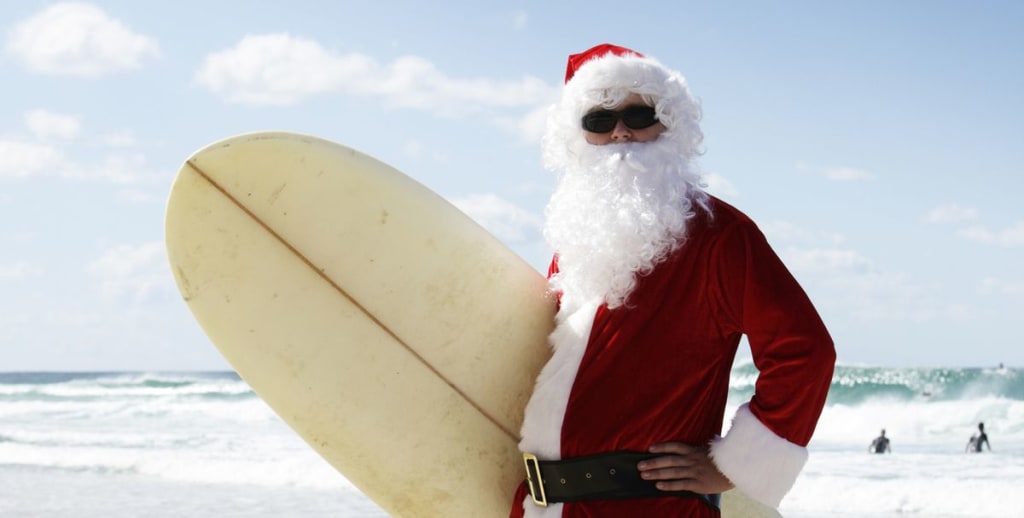Fabulous facts about christmas traditions and customs
When Christmas is Celebrated,

Many people think Christmas is on December the 25th and that's all there is to Christmas. However, for many people around the world, in different countries and in different Christian traditions, Christmas lasts for a lot longer than that - and it's even celebrated at different times!
The name 'Christmas' comes from the Mass of Christ (or Jesus). A Mass service (sometimes called Communion or Eucharist) is where Christians remember that Jesus died and then came back to life. The 'Christ-Mass' service was the only one that was allowed to take place after sunset (and before sunrise the next day), so people had it at Midnight! So we get the name Christ-Mass, shortened to Christmas.Although December 25th (or the late afternoon/evening of December 24th) is the date when most people celebrate Christmas, there are some other dates as well!
Some churches (mainly Orthodox and Coptic Orthodox churches) use a different calendar for their religious celebrations. Orthodox Churches in Russia, Serbia, Jerusalem, Ukraine and other countries use the old 'Julian' calendar and people in those churches celebrate Christmas on January 7th. The Coptic Orthodox Church celebrates Christmas on January 7th. The Ethiopian Orthodox Tewahedo Church also celebrates Christmas on the 7th January (which is the 29th of Tahsas in their calendar).
Most people in the Greek Orthodox Church celebrate Christmas on December 25th. But some still use the Julian calendar and so celebrate Christmas on 7th January! Some Greek Catholics also celebrate on January 7th.
The Armenian Apostolic Church celebrates Christmas on January 6th. It also celebrates Epiphany on this day. Advent - The Time Before Christmas: Before Christmas, many Christians use the time of Advent to prepare themselves and get ready to celebrate the joy of Christmas, when Christians celebrate of the birth of Jesus, who they believe is the Son of God.
Advent is normally a period of four Sundays and weeks before Christmas. In many Orthodox and Eastern Catholics Churches Advent lasts for 40 days, starting on November 15th.
In Orthodox Churches which celebrate Christmas on 7th January, Advent start on 28th November!
During Advent many people fast (don't eat certain foods). The types of food people give up depends on their church tradition and where in the world they live After Christmas - The 12 Days of Christmas and Epiphany: After Advent, traditionally, Christmas celebrations (and often a feast!) started on Christmas Day and lasted for 12 Days - so they were known as The 12 Days of Christmas! The celebrations finished on the evening of 5th January, which is better known as Twelfth Night.
Throughout history, the 12 Days of Christmas were a time of feasting and fun.
Following Twelfth Night, on 6th January, is Epiphany, when people remember the Wise Men (also sometimes called the Three Kings) who visited Jesus when he was a baby; and the Baptism of Jesus when he was an adult.
Epiphany/Twelfth Night is also the time when it was traditional to take your Christmas decorations down - although some people leave them up until Candlemas. Candlemas - The End of Christmas :You might think that Christmas ends when you take the Christmas Decorations down - but it doesn't! After both Christmas and the season of Epiphany, the end of the Christmas celebrations come on February 2nd, 40 days after Christmas, with Candlemas.
Candlemas, also known as the 'Presentation of Jesus at the Temple' or the 'Feast of the Purification of the Virgin (or Mary)' is the when some Christians remember the time when Mary and Joseph took the baby Jesus to the Jewish Temple in Jerusalem to give thanks to God for giving them a son.
It's a very important day in some Orthodox and Catholic churches.
The name Candlemas comes from 'Candle Mass' because in many Candlemas services, the candles are blessed to be used in churches during the coming year or are given out to people for them to use in their homes and private prayers.
In many Catholic churches, it's a time when people remember and renew promises they've made to the church and celebrate some of the prophecies which were given about Jesus.
In many Eastern/Orthodox churches, an all night vigil is held on the night before the candle blessing ceremony. In the morning, the candles are blessed and are given out to people.
During the Elizabethan period, it was common to leave up decorations until Candlemas and some people still do this today!
About the Creator
Edwin Kingsly
i will write christian related and social contents.Also,stories like horror,moral,fiction






Comments
There are no comments for this story
Be the first to respond and start the conversation.